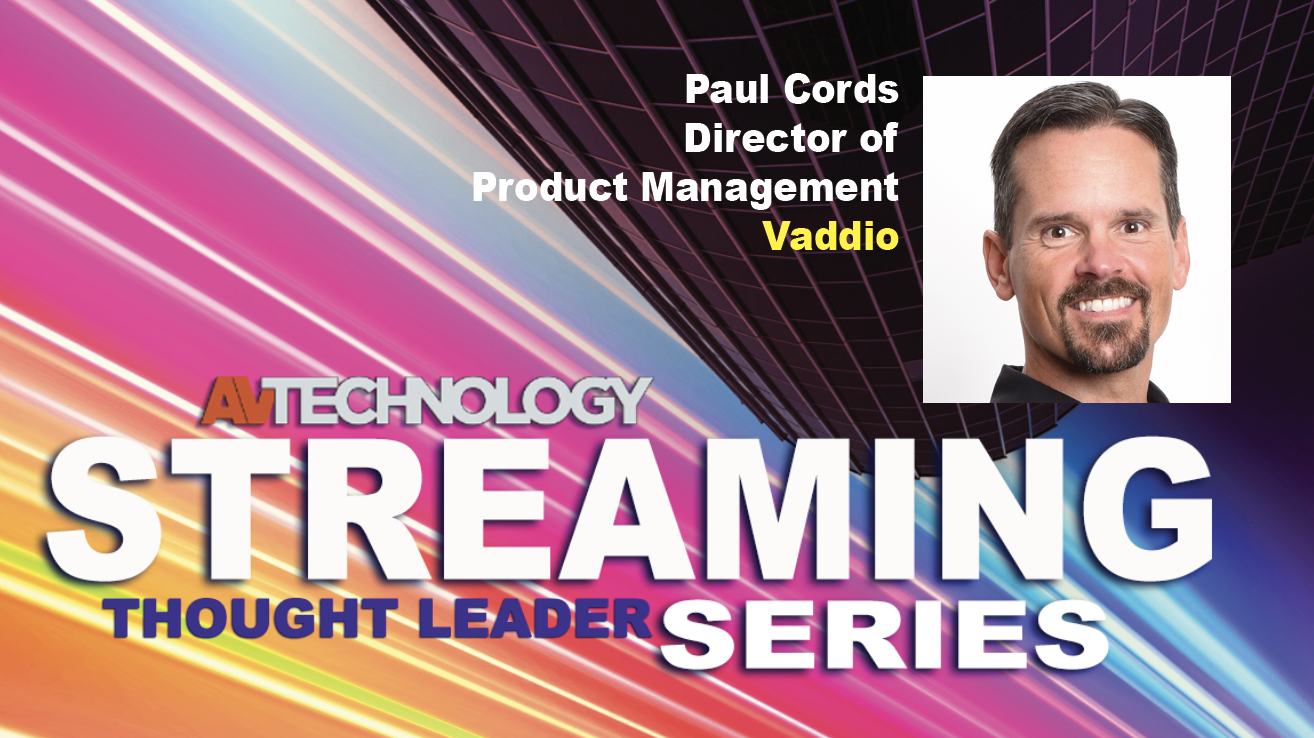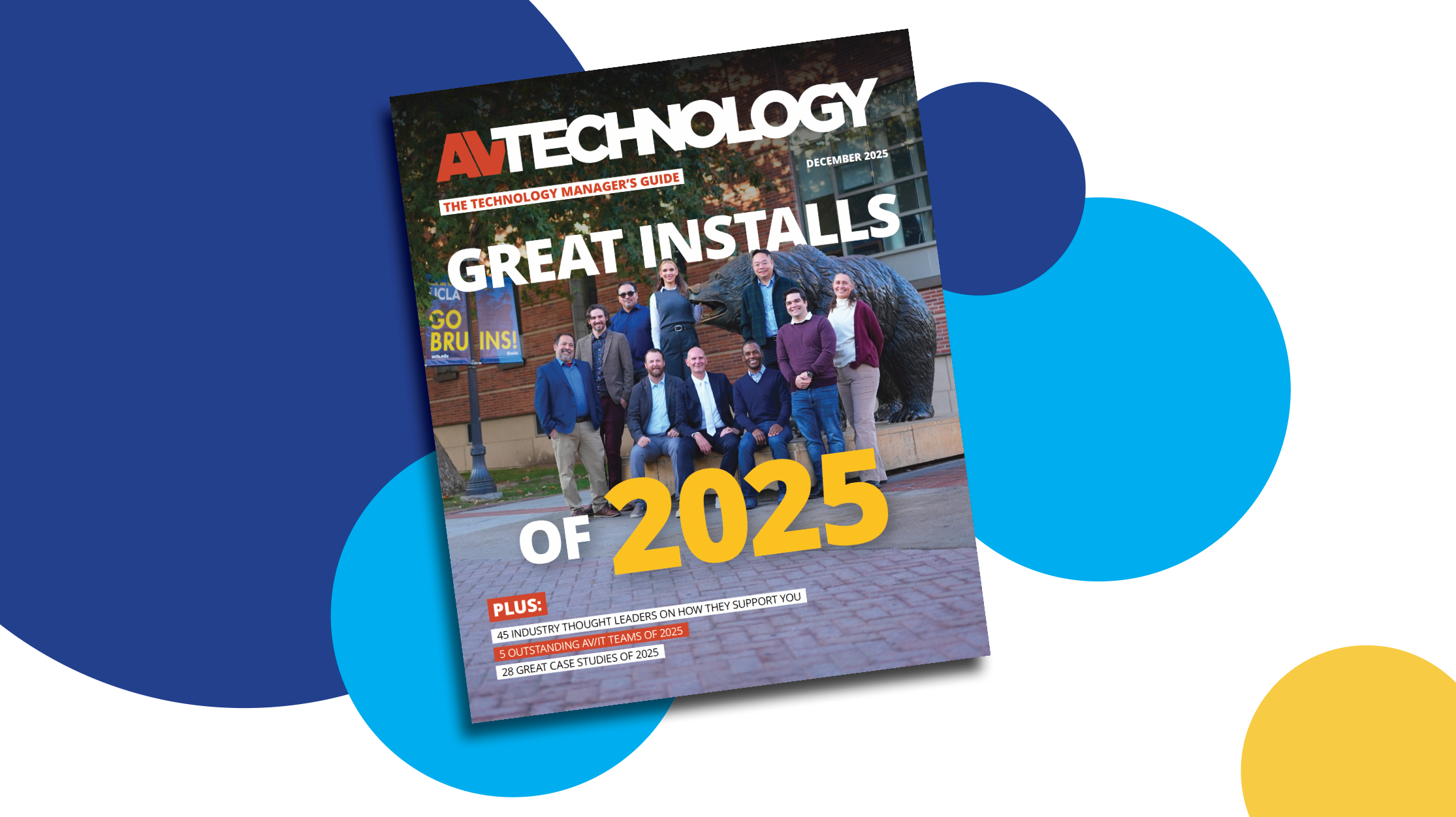On Streaming: Vaddio
Paul Cords, Director of Product Management at Vaddio shares insight into trends and best practices for the next-gen streaming media ecosystem.

AVT Question: Please share insight and best practices for planning to integrate the next-gen streaming media ecosystem.
Thought Leader: Paul Cords, Director of Product Management at Vaddio
There’s so much to consider when setting up a streaming media environment. First, you have to consider the application to determine what equipment will best suit the use. One-person events are very different from panels or large venues. How the event needs to look is also important for equipment consideration; static shots, PTZ, camera operation, lighting conditions, and more affect the end experience. Keep in mind people that are now accustomed to seeing multiple camera shoots, because it’s interesting, compelling, and captivating compared to a single static shot.
Local recording can be your friend in case there’s some issue with the streaming service." —Paul Cords, Director of Product Management at Vaddio
Once that’s been determined, you want to make sure the cameras are stable—either mounted or attached to a tripod for extra flexibility. Get the mics as close to the speaker as possible and check for ambient noise that can kill a stream quicker than just about anything. Confidence monitors for speakers help them know when they are out of frame and if the content matches where they are in their presentation. People are also accustomed to a baseline level of lighting production. Three-point lighting is desirable and fills in all the angles for a great-looking stream.
Finally, some housekeeping tips: Graphics can be your friend for citing references, adding speaker titles, and more; look for solutions that work with a variety of streaming platforms, including any niche platforms commonly used by certain applications; local recording can be your friend in case there’s some issue with the streaming service; and lastly, test, test, test. Don’t leave anything to chance.
[15 AV/IT Thought Leaders On Streaming]
A daily selection of features, industry news, and analysis for tech managers. Sign up below.
Macy O'Hearn has been a contributing writer to AV Technology since 2019 where her focus is working on the Technology Manager's Guides. In addition, O'Hearn has contributed articles to SCN, and is the editor for the 2022, 2023, and 2024 Digital Signage magazine.
